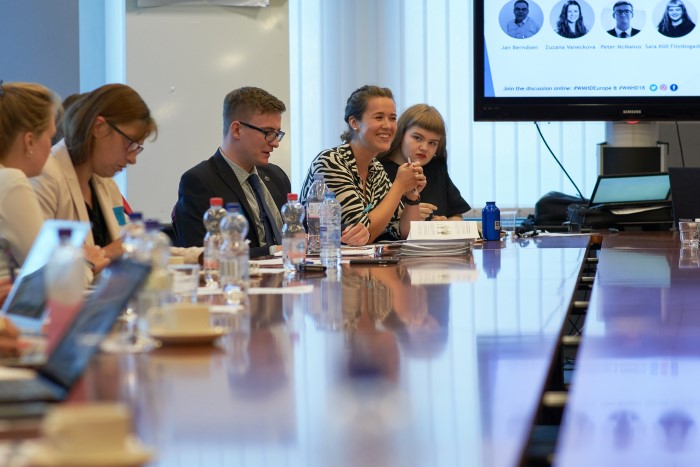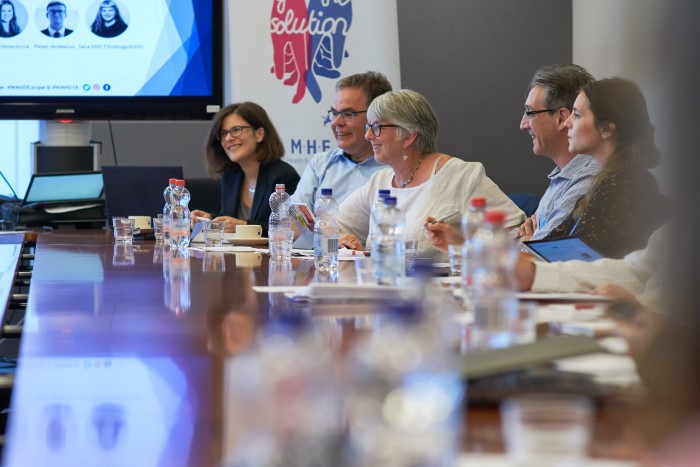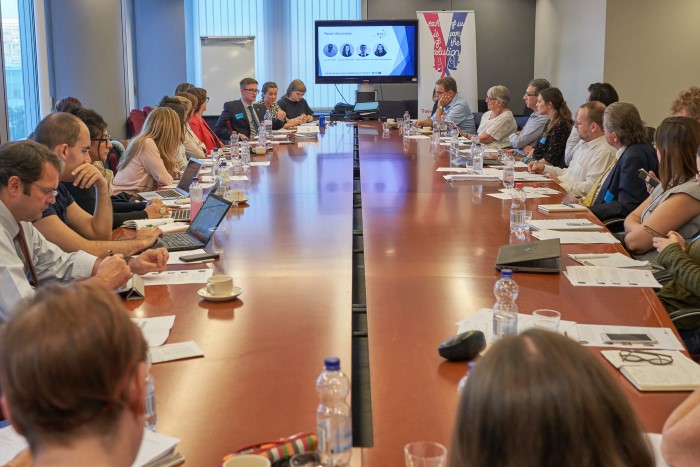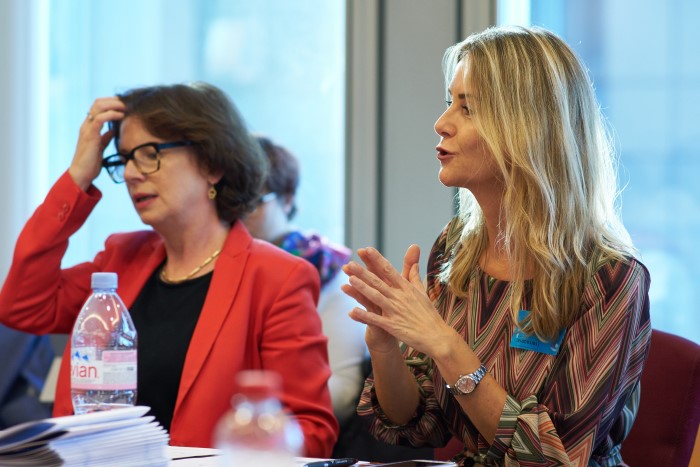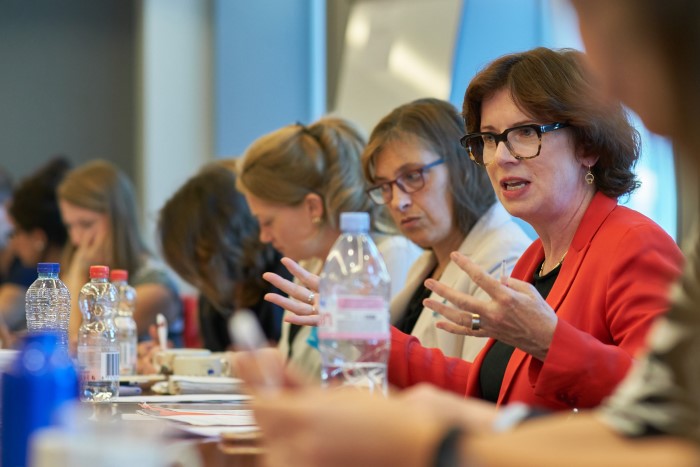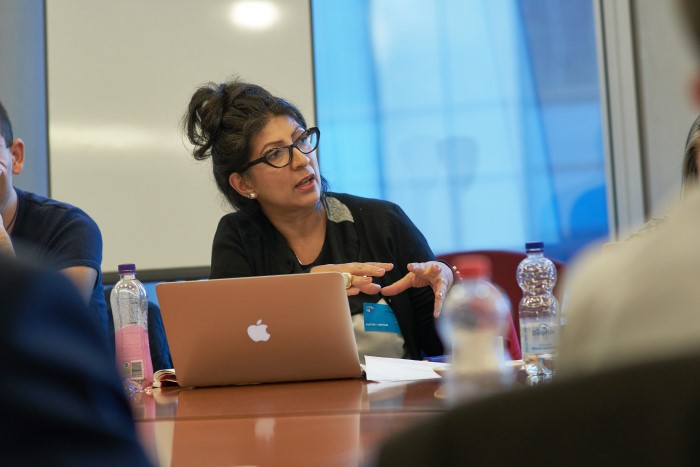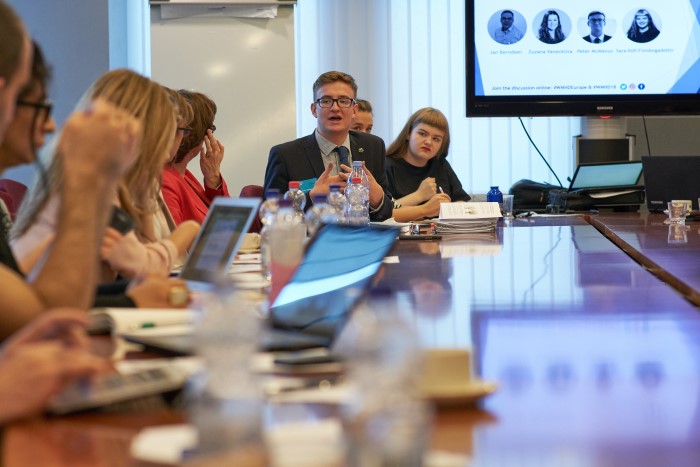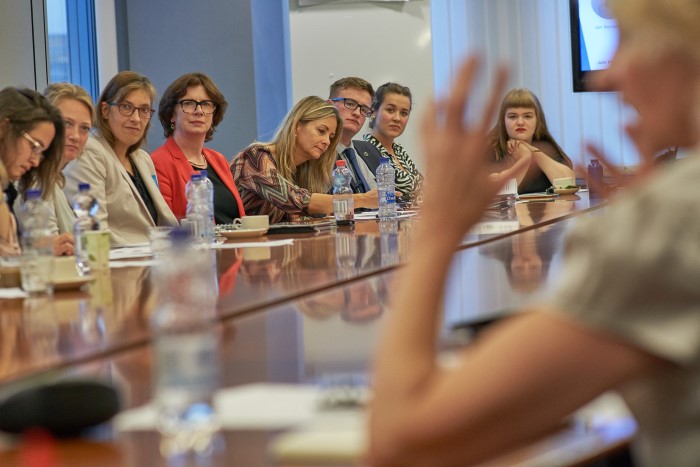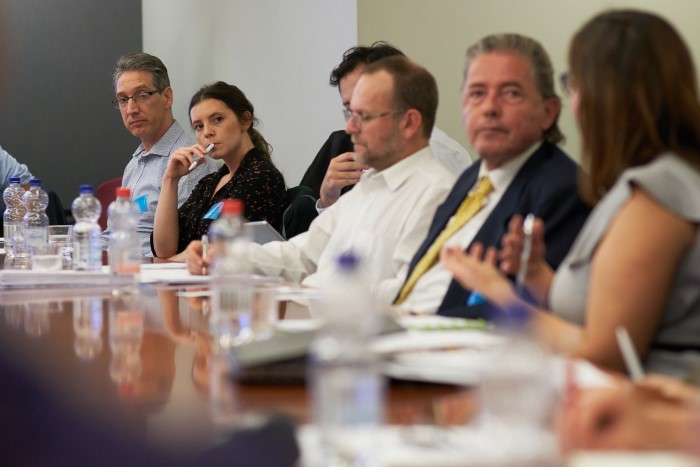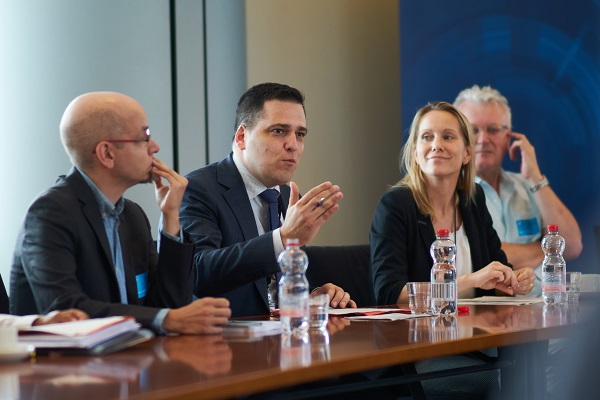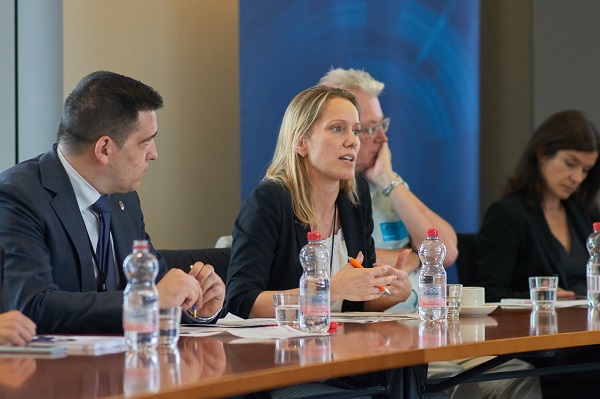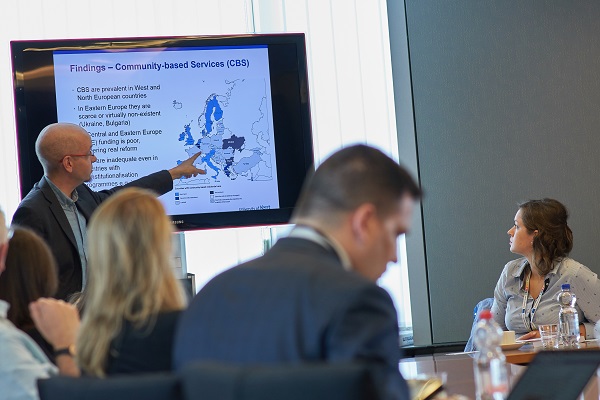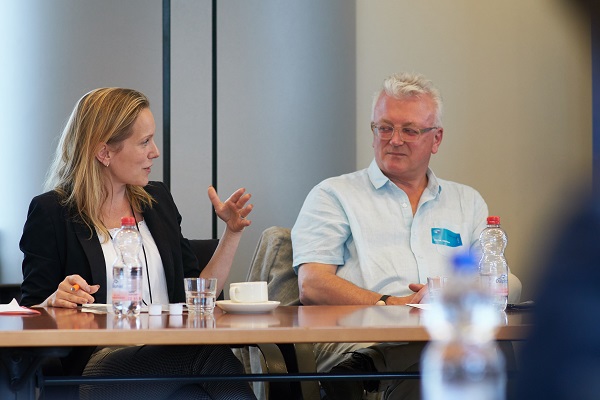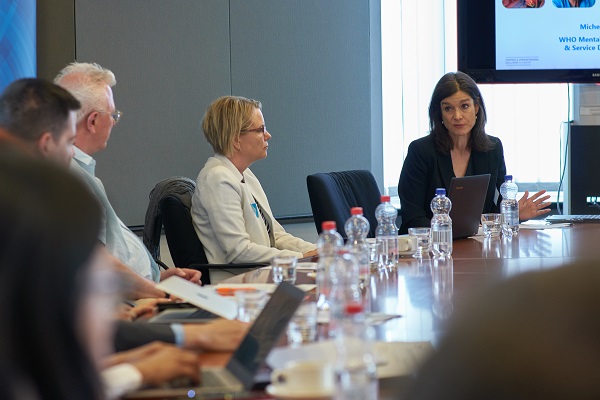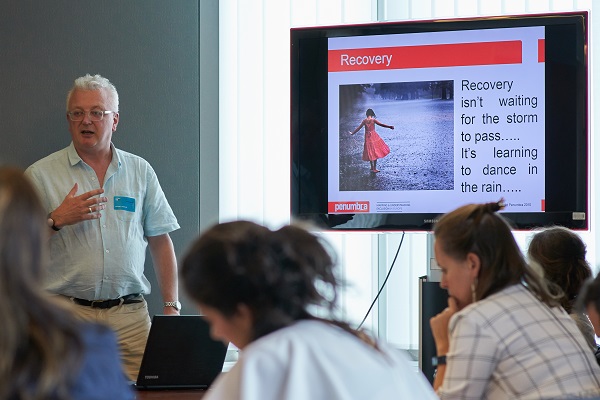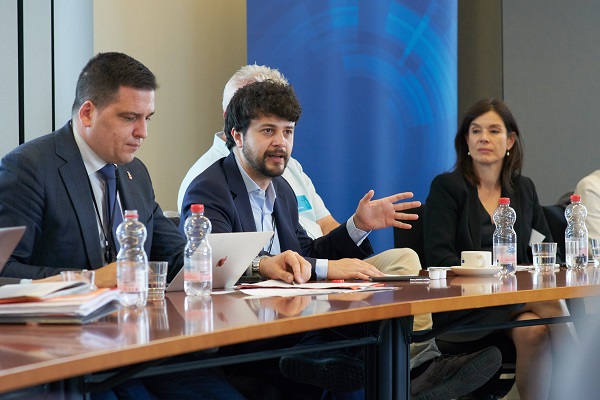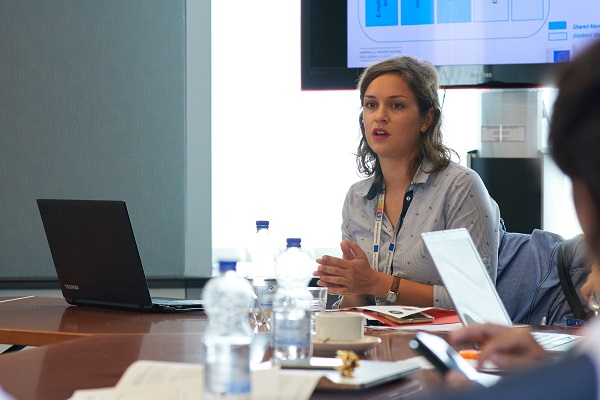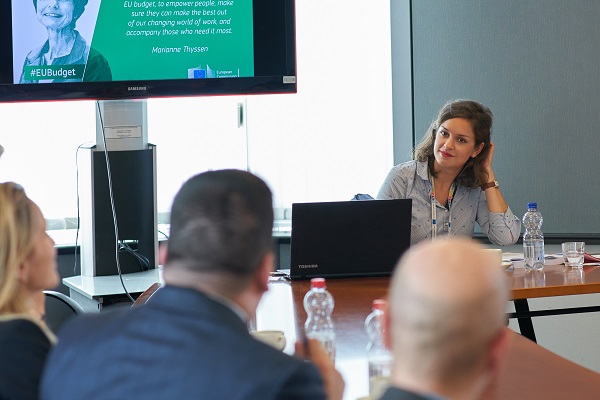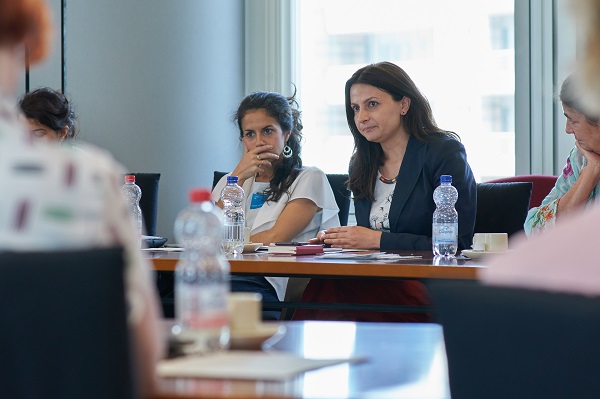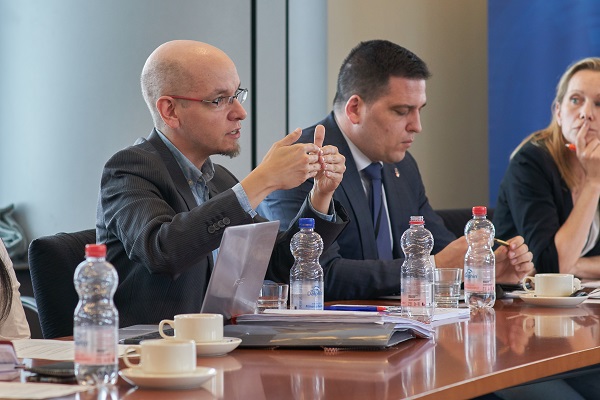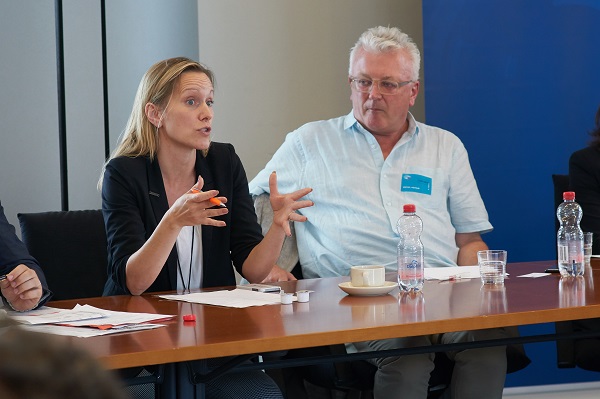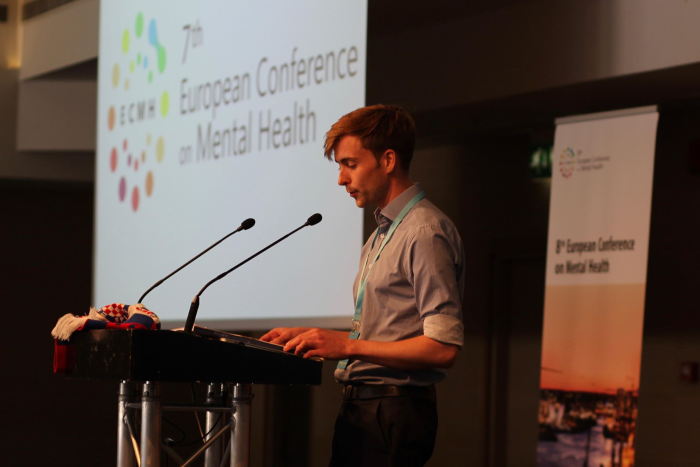
Earlier this month I had the pleasure to speak at the 7th European Conference on Mental Health in Split, Croatia.
I was kindly given the opportunity to speak to around 300 delegates at the closing ceremony. The speech I delivered is below.
Focusing on the future: how can we achieve better mental health and wellbeing in Europe?
It is an absolute please to come to speak to you all today, not least because it has been very nice to escape from a rather chilly weather in Brussels and come here to the much warmer weather of Croatia.
I work for an organisation called Mental Health Europe. We are an umbrella body representing 73 organisations in 30 – mostly European – countries. This includes the mental health organisation Susret, based here in Croatia.
And much like the people here at this conference, Mental Health Europe’s membership is the coming together of a mix of different people in the field of mental health, including users of mental health services, professionals, service providers and volunteers.
At Mental Health Europe our mission is simple – we advocate for positive mental health and wellbeing, we advocate for the rights of people living with mental ill health, and we work to raise awareness and end mental health stigma.
We follow the psychosocial model of mental health and our objectives can be summarised as:
Human-rights based & recovery focused support
Parity of esteem between physical and mental health
The importance of community-based care, and
The need for good mental health at work
I will speak in much more depth about the work of Mental Health Europe, but I thought I would first turn to the title of this speech: Focusing on the future: how can we achieve better mental health and wellbeing in Europe?
This is, of course, a rather big question to answer.
To try and quantify the challenge ahead – the commonly quoted figure is one in four people will experience a mental health difficulty in any given year, but research also suggests young people are increasingly experiencing mental health difficulties – 10% of school children have a diagnosable mental illness.
Looking across Europe we know that many services do not provide the support young people or adults need, and in many states austerity and financial pressures mean many services for mental health are shrinking, or worse still, closing altogether.
So, how can we achieve better mental health and wellbeing in Europe? Well I, as just one person working in the mental health field, certainly do not feel qualified to provide all the answers here, particularly in the company of so many excellent contributors here today. But, I will share a few thoughts.
To give you some background on me – I am 28 years old and I’m originally from the UK. I currently live in Brussels in Belgium and I work as a communications officer for Mental Health Europe. In this roll I help raise awareness of mental health and help MHE promote its work – although usually from behind a desk, rather than from the stage like this.
I took up this role with MHE only a few months ago, moving from Edinburgh in the UK where I worked for a mental health support provider called Penumbra. The name Penumbra might sound familiar to some of you. Penumbra’s chief executive Nigel Henderson gave the keynote speech at the 6th European Conference on Mental Health last year in Berlin. And Bridey Rudd from Penumbra has been speaking at this conference about measuring recovery outcomes for children & young adults.
If you haven’t checked our Bridey’s work yet, I seriously suggest you do. Although it is not the subject of this speech, Bridey’s work could really have a positive impact on mental health of young people across Europe.
I worked in Edinburgh for Penumbra for several years, and it was whilst I was there that I learnt about the big challenges in mental health. And also where I witnessed and understood the value of community based services focused on recovery.
Returning to the title of this speech – how can we achieve better mental health and wellbeing in Europe? – the main area I will highlight is how we provide service.
Earlier this year, shortly before I started at the organisation, Mental Health Europe published a report called Mapping and Understanding Exclusion in Europe. It is a unique study which looks at the state of mental health services in 35+ countries across Europe, providing exclusive data and testimonies about European mental health systems, ongoing human rights violations and the changes on the horizon.
In many ways the report is not happy reading – it found tens of thousands of people with mental health problems are living in psychiatric and other institutions in Europe today.
Across the EU MHE estimates that at least half a million people with mental health challenges live under full guardianship, a form of substitute decision making which leaves people isolated from society and deprived of the right to make everyday choices about their lives.
In some countries – including France, Belgium, Ireland, the Netherlands, Portugal, and Germany – the report found mental health systems are falling short when it comes to human rights. Services still feature coercion, forced medication, loss of rights and reliance on involuntary hospitalisation.
It is my belief that we need to immediately reduce coercion in mental health services, and ultimately eliminate such practices altogether in line with human rights standards.
The benefits of this approach are obvious for the individual – human rights afford dignity and respect, and safeguard against discrimination, violence, exclusion, unlawful or arbitrary institutionalisation, overmedicalisation, and more. But there are significant positives for society too – such an approach leads to more cohesive, resilient, and productive communities that support individual recovery.
So if we want to achieve better mental health and wellbeing in Europe, a good place to start will be the holistic deinstitutionalisation of services, in partnership with organisations representing people with mental health difficulties and other stakeholders, and the movement towards a system grounded in human rights.
This might sound like a lofty goal, but I think that it is achievable. I was struck by what Brenda Happell – Chair of the Scientific Committee of this conference – said at the opening of this conference about the need to focus on our goal, rather than concentrating on the hurdles we have to overcome.
Just before I finish, I would like to highlight that between now and the next conference – which we will hear about shortly – there is a window of opportunity to achieve change.
In May voters across Europe will elect member of the European Parliament – one of the strongest European-level policy making voices. MEPs are well placed to raise awareness of mental health and tackle stigma and discrimination. They can ensure the meaningful involvement of stakeholders in EU policy-making, back investment in mental health research, promote increased transparency in mental health care, and support the continued transition from institutional to community-based care.
As we all return to our home countries after this successful conference – I hope we will take the good ideas and energy I have witness at this event with us. I hope that everyone of us will resolve to make sure the prospective MEPs in our home countries know that mental health is important. At MHE we want more MEPs than ever to back the human rights-based and recovery-centred approach to mental health that I have spoken about.
You may have noticed that our conference badges have the motto: looking for evidence together. The path to change might not be simple, but when we work together change is possible. Thank you.
